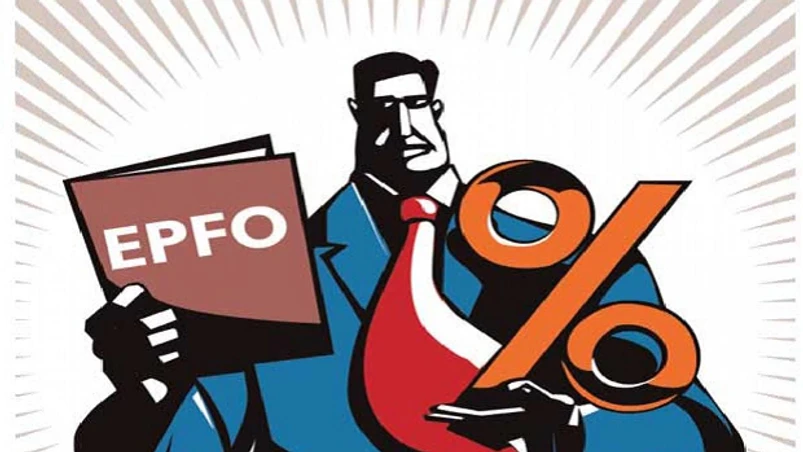 How has EPFO's equity investment experience been?
How has EPFO's equity investment experience been?
From investing in traditional instruments, the Employees' Provident Fund Organisation (EPFO) has been exploring the virtues of markets for a while now. Is the statutory body's move bearing fruits now?
Akash PodishettySachin P Mampatta New Delhi
)
EPFO
Millions of private sector employees park their money with EPFO to ensure a hassle-free retirement. But do you know where The Employees’ Provident Fund Organisation or EPFO invests this money to give you those good returns. And do they invest in equities too?
The government recently told the Parliament that the retirement fund body has invested Rs 1.59 trillion in exchange traded funds (ETFs) as of March 2022 and the investments are now worth Rs 2.26 trillion. This means, EPFO has in notion made Rs 67,000 crore from its ETF investments. ETFs are funds that track the yield of indexes such as Nifty or Sensex. But unlike mutual funds, the units of ETFs are listed on the stock exchanges.
EPFO’s total corpus is anywhere between Rs 16 trillion to Rs 17 trillion, according to the latest available data. And it has traditionally been a big investor in debt securities. Currently the retirement fund body invests 85 percent of incremental deposits in debt instruments, mostly “AA” or above securities. EPFO’s debt investments are worth about Rs 14.46 trillion.
Starting 2015, the government allowed it to invest 5 percent of the investable deposits in equities. Currently, the fund body invests up to 15 percent of its investable deposits in ETFs. It is also allowed to directly invest in listed shares of companies with a market cap of over Rs 5,000 crore. However, it invests only in ETS and not in individual stocks.
More From This Section
The investment in ETFs is made based on Nifty 50, Sensex, Central Public Sector Enterprises (CPSEs) and Bharat 22 Indices. The body had invested Rs 43,568 crore in FY22, Rs 32,000 crore in FY21 and some Rs 31,500 crore in FY20 in ETFs.
The objective of EPFO investments in equities was to provide good returns to its subscribers in the long term. An analysis shows that equity markets have given higher returns than the debt markets. In the last five years, the average return on investments in Sensex and Nifty is 18 per cent, while the government debt and highest-rated corporate yields stood at 6.8% as of March-end.
On the other hand, the return on EPFO’s debt investments was 6.78% in FY21 and 7.5% in FY20. It was 8.5% in FY19. The fund body’s notional equity returns on EPFO equity-related investments increased from 14.6% in FY21 to 16% in FY22, according to the government.
Some experts say EPFO’s allocation to equities has been on the conservative side. According to a Thinking Ahead Institute and Pensions & Investments annual joint study, the top 20 global funds on an average invested approximately 41.7% of their assets in equities. While North American, European and other regional funds have invested a majority share in equities, Asia-Pacific funds have largely allocated assets to fixed income investments.
So, do restrictions around equity investments cut down on the potential of higher and more sustainable savings models for the body?
Deepesh Raghaw, Registered Investment Advisor, www.PersonalFinancePlan.in says, there is always a probability to increase or decrease EPFO’s equity exposure. But, the risks should also be associated with the investor and not the EPFO or government.
The safe investment bets mostly in fixed income instruments are also mainly due to the largely unpredictable nature of the markets and the fact that EPFO has to offer fixed interest returns year after year to its over 60 million subscriber base irrespective of its underlying portfolio returns. There have been some news reports that the allocation to equities might rise to over 20%, but the government so far denied such a proposal.
Prasanna Deokar, Principal - India Investments, Mercer Consulting says, EPFO's equity benefits are not being enjoyed by subscribers to the fullest potential. Member's choice in equity investing might be a way going forward.
There are mixed views on whether EPFO's equity investments are conservative. However, in the long run, EPFO may need to go beyond ETFs that track two major domestic indices and make more diversified equity investments. The pension fund may also look at global diversification of the overall portfolio.
There are mixed views on whether EPFO's equity investments are conservative. However, in the long run, EPFO may need to go beyond ETFs that track two major domestic indices and make more diversified equity investments. The pension fund may also look at global diversification of the overall portfolio.
Also Read
Don't miss the most important news and views of the day. Get them on our Telegram channel
First Published: Aug 23 2022 | 7:00 AM IST

